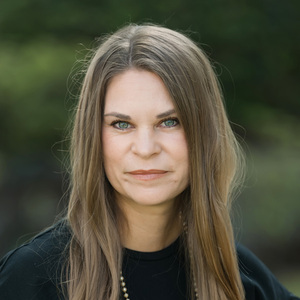
Television images of the devastating aftermath of last spring’s that killed nearly 70,000 people left viewers around the world in disbelief.
But for three Biola alumni who witnessed the death and destruction firsthand as part of a medical relief effort, what they saw was nothing short of life-changing.
‚ÄúIt‚Äôs one thing to read about it or watch it on TV, but a completely different thing to be there and see and experience the sights, sounds and smells of the devastation,‚ÄĚ said Monica Finifrock, a 1998 nursing graduate who lives in China with her husband, Jake.
Soon after the earthquake hit, Finifrock and fellow Biola graduates Richard (M.A. ’06) and Esther (M.A. ’04) Chen responded by joining a nine-person medical team from China’s Macau region for a three-day earthquake relief trip organized by .
The three ‚ÄĒ who met last fall through their work in southern China with , an organization specializing in linguistics, translation and minority language development ‚ÄĒ traveled to some of the remotest regions of China‚Äôs Sichuan province to provide much-needed medical assistance.
Finifrock worked as a ‚Äėtriage‚Äô nurse, being the first one to interview, examine and talk with patients. The Chens helped with pharmaceutical distribution and patient teaching.
On the first day, the team treated 200 people suffering from a variety of health issues ‚ÄĒ skin infections, bug bites, bronchitis, wounds that had not been treated, post-traumatic stress and more. For the following days, the team traveled to different locations to give medical assistance.
One particularly hard-hit area they visited was the town of Xiang’a, where the local elementary school collapsed, killing 400 children.
‚ÄúNever before have we seen such devastation firsthand,‚ÄĚ said Esther. ‚ÄúWe were deeply saddened as we saw whole communities with only a few children left among them. Our hearts broke as we heard their stories and walked beside the rubble that they used to call home.‚ÄĚ
Although the devastation was overwhelming, the people were excited the team was there.
‚ÄúWhat stood out to me the most was how happy the people were that we had come to see them,‚ÄĚ said Finifrock. ‚ÄúThe people in one village were so moved by our presence that they gave us bottles of water and noodles to thank us.‚ÄĚ
In Xiang’a, the team encountered a group of elderly people in desperate need of medication for various ailments such as high blood pressure, thyroid problems and diabetes. Most of their medications had been buried in the rubble from the earthquake, so Finifrock and the Chens did what they could to distribute supplies to ease the people’s suffering.
In every interaction the team had with victims of the earthquake, their desire was to show the compassion, love and peace that only the Father can give, said Finifrock.
‚ÄúMost of the people seemed in a daze, and it was clear they just wanted attention, and to share their stories,‚ÄĚ she said.
Even though their relief trip lasted only a few days, Finifrock and the Chens felt blessed to have been able to serve the people of Sichuan in such a time of suffering.
For Finifrock, the experience was a reminder of how fleeting life is ‚ÄĒ ‚Äúhow we should, every day, give 100 percent to loving the Father and loving those around us, putting aside distractions and petty concerns.‚ÄĚ
 ļŕ›ģ ”∆Ķ
ļŕ›ģ ”∆Ķ
.jpg)

